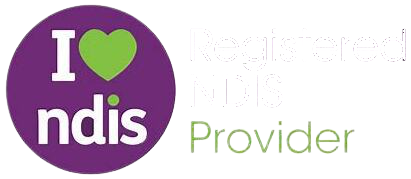Youth Justice ReConnect
RLCDSS provides a bridging, supported living setting for young people who are involved in the Youth Justice System, who require support and assistance to prepare for an enhanced independent living.
Our cohort for Youth Justice Program
- 15 to 25 years of age involved in the criminal justice system
- Young people with challenging behaviours, Mental Health and Intellectual Disabilities
- Youth Justices orders or who have recently completed their Youth Justice orders
- On Good Behaviour Bond
- High risk behaviours
- Early Intervention
Early intervention is identified by schools and police.
Youth Justice Programs
RLCDSS provides a bridging, supported living setting for young people who are involved in the Youth Justice System, who require support and assistance to prepare for an enhanced independent living. Program provides supervision, case management to young people who have been sentenced and placed on community orders and those who have been paroled as part of their custodial sentence and bail supervision.
Provides support for young people from CALD background.
- Aims to reduce reoffending by targeting risk factors and promoting protective factors.
- Approach used aims to challenge the offenders reasoning, perception and behaviour for the young person to make informed choices.
- Addresses a full range of criminogenic risk factors i.e. Individual, Family, Peer, Biological and Environmental factors (Pattern and History & Impact of Cumulative Harm).
- Service coordination – for example facilitating for young person to attend an appointment as recommended by court i.e. psychologist, mental health
- The young person benefits from the external service i.e. mental health support etc whilst receiving Real Life Choices support in order to prevent any breaches of existing orders and likelihood of re-offending is minimised.
- Young people often offend due to the likelihood of failing to engage into these recommended programs which helps to modify their behaviour.
- What works for the young person (Strength Based Approach)
- Planning is ‘with’ rather than ‘for’ the young person with their families and/or significant other
- Building meaningful daily routines to occupy the young person
Early Intervention Program
- For young people who commit minor offences
- Aims is to prevent the young person involvement with the Justice System
- Showing high risk behaviours
Our Early Intervention Program focuses on;
- Standard intervention
- Intervention will focus on the the identified Dynamic need
- Mentoring
- Motivating activities
- Engagement in Community activities
- Broken windows theory
By properly addressing minor problems at first instance, in a down-to-earth, human and practical way, we reduce the build-up of low-level cases and potential escalation into full-blown trickier cases. The broken windows theory may be an old one but it still rings true:
Consider a building with a few broken windows. If the windows are not repaired, the tendency is for vandals to break a few more windows. Eventually, they may even break into the building, and if it’s unoccupied, perhaps become squatters or light fires inside.
If partner agencies work together to minimise crime and maintain safe, clean and desirable communities, further antisocial behaviour is much less likely to occur. If we ignore the seemingly minor issues like barking dogs and neighbour disputes, they can escalate and become the norm for a community.
Working in partnership with Police and School to identify
Youth Program CALD
Culturally and Linguistic Diverse Community Network Support
- As a specific component this program will be working to build strong collaborative relations with CALD Justice Services and mainstream CALD services. We will be working in collaboration to ensure cultural competency throughout the entire program and appropriate service responses to CALD clients in mainstream services and protocols as appropriate for co-case management where required between CALD services and us.
- Reducing risk factors and promoting protective factor
- Research indicates that young people respond better to programs that are engaging, therefore, interventions should be delivered to young people and their family members in a culturally appropriate way that promotes participation.
- If a young person has trouble participating in an intervention, then delivery is adapted to suit individual needs and local capability. For example, considering changing the time or location of intervention.
For more information, contact us


